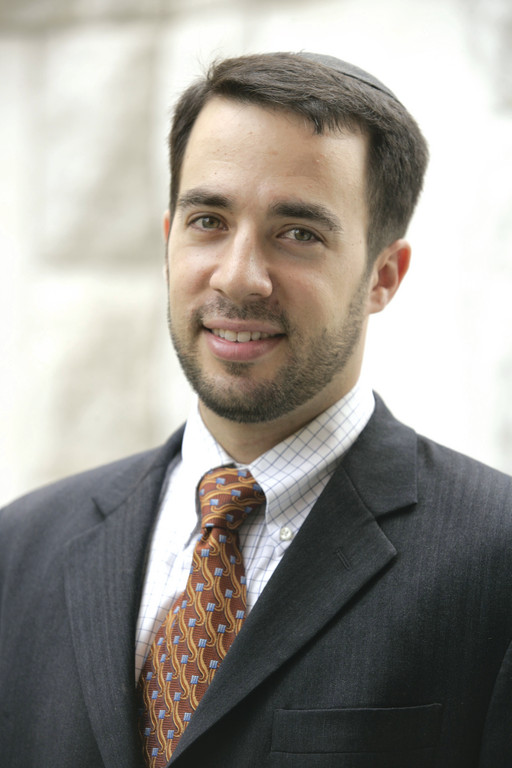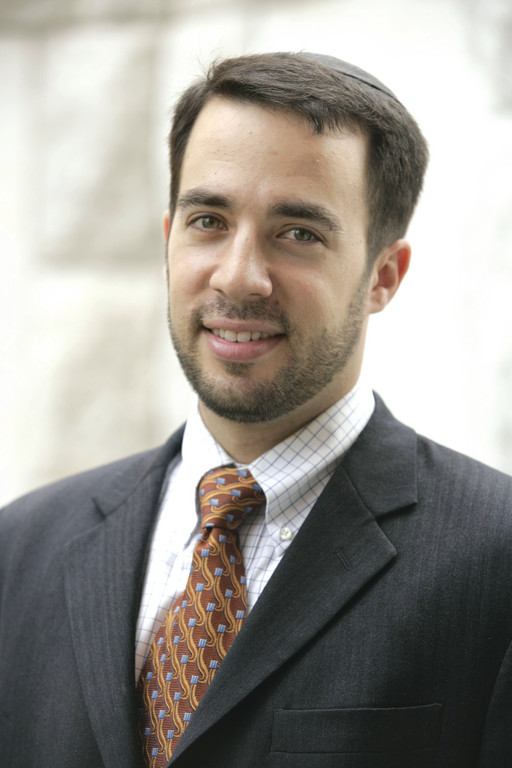Rabbi Avi Billet
491 results total, viewing 371 - 380
|
After the Torah describes the order and population of how the Israelites traveled in the desert, we are told of how the tribe of Levi was not counted with everyone else, nor did they travel amongst the people. Their camp was around the Mishkan, and their jobs focused on breaking down, carrying and reconstructing the Mishkan as per the travels of the nation.
more
By Rabbi Avi Billet
|
5/9/13
|
|
The Torah gives three examples of “Your brother becoming impoverished.” (V’khi yamukh achikha). The first has to do with selling family property, and how it returns to the original owners at the Jubilee year.
The second and third examples deal with a case where he cannot sustain himself and is relying on community assistance (25:35-38), or even needs to be sold into slavery to support himself (25:39-42), respectively.
more
By Rabbi Avi Billet
|
5/2/13
|
|
“And G-d said to Moshe, ‘Say to the Kohanim, the sons of Aharon, and say to them, they should not become ‘tameh’ to people of the nation.’” (Vayikra 23:1)
The opening instruction in our parsha is for the kohanim to learn that they must follow a strict behavior, in which under ordinary circumstances they can only become “tameh” to a dead body if the deceased is one of seven close relatives.
more
By Rabbi Avi Billet
|
4/25/13
|
|
William Faulkner was a master of writing single sentences that span an entire page. Though they run on and on, the sentences could not be marked as “run-on” by a grammar teacher. It is a unique skill possessed by the loquacious, which marvels readers.
The longest sentence I am aware of in the Torah has 34 words in it (Shmot 32:1).
more
By Rabbi Avi Billet
|
4/18/13
|
|
The primary topic of our double parsha focuses on the affliction of tzaraat, its diagnosis and prognosis. The attention is primarily on the kohen, who is given detailed instructions for how to detect what is or is not tzaraat. He is also given tremendous autonomy in deciding whether the mark he is examining is tzaraat.
Interestingly, there is no mashgiach monitoring to see that what the kohen declares is “correct.” He makes the call.
more
By Rabbi Avi Billet
|
4/11/13
|
|
Tragedy has struck. Aharon’s two older sons are dead, victims of their own efforts in bringing a ‘strange fire’ into the Mishkan. Now their corpses must be removed from a room only their father and brothers may enter, yet these very people are the ones who are prevented from entering because they have a job to do, and responsibilities which can not fall by the wayside – the inevitable outcome of their becoming “tameh” through contact with the deceased.
more
By Rabbi Avi Billet
|
4/4/13
|
|
Overheard from a second grade rebbe: “If I don’t load the kids up with Pesach preparation, parents think they haven’t learned anything all year.”
I don’t know if that is a truism across the board, if many parents think that way, or if just a minority take the Pesach prep as a reflection of the entire school year. But I think such a notion is antithetical to what Pesach is all about.
We are doing it all backwards.
more
By Rabbi Avi Billet
|
3/21/13
|
|
A number of Midrashim pose the question (ascribed either to Rabbi Yoseh, Yosi, or Dosa), “Why do children begin learning the [Chumash] from the section about korbanot [offerings]?” And the answer is, “Because just as the korbanot are pure, so are the children pure.”
more
By Rabbi Avi Billet
|
3/14/13
|
|
With this week doubling as a (double) parsha plus Parshat HaChodesh, we find the coincidence of the date of “HaChodesh” making an appearance in the parsha - “On the day of the first new moon, on the first of the month, you will erect the Mishkan.” (40:2)
Commentaries are struck by the seeming redundancy – why does the Torah say “on the first of the month” when that date is obvious based on the previous phrase in the verse?
more
By Rabbi Avi Billet
|
3/7/13
|
|
The term “Kodesh Kodashim” appears in the Torah 18 times – twice in Parshat Ki Tisa. However, not one of these times does it refer to the Holy of Holies, the section of the Mishkan/Tabernacle which houses the Aron/Ark.
more
By Rabbi Avi Billet
|
2/28/13
|

 39.0°,
Fair
39.0°,
Fair 
